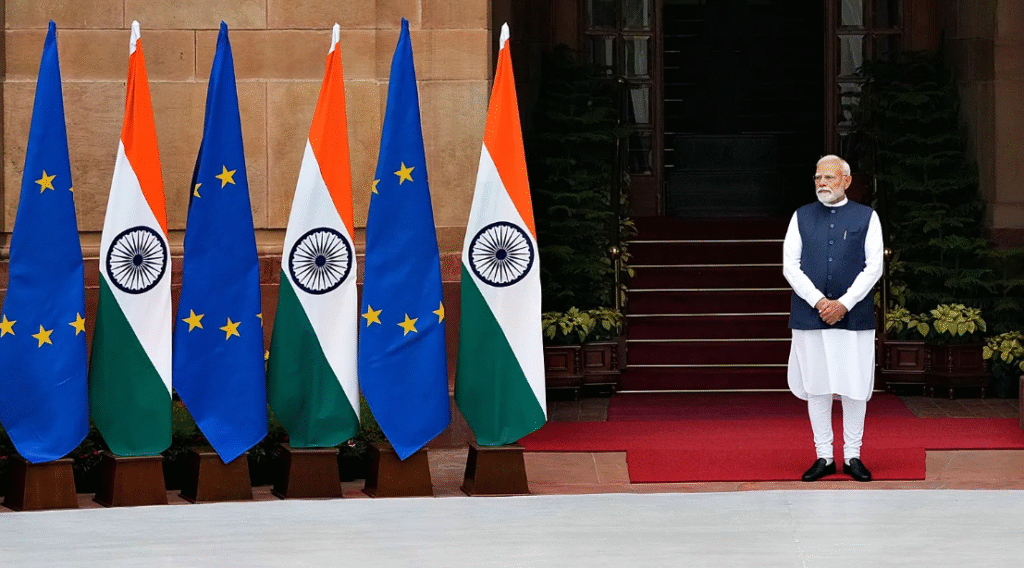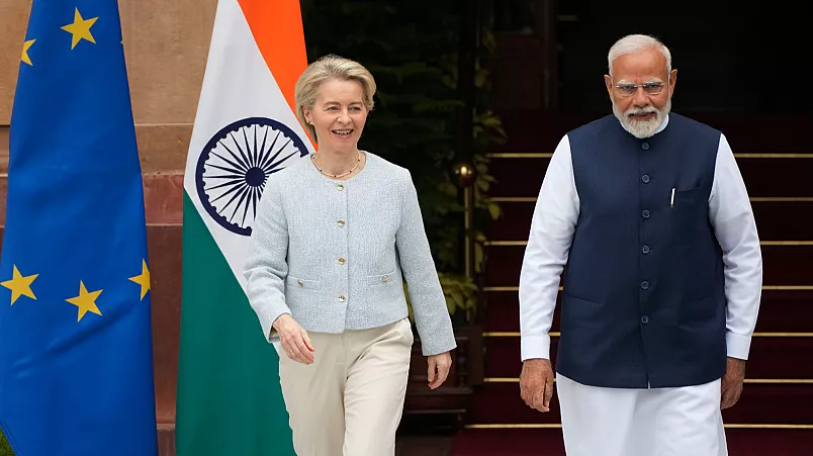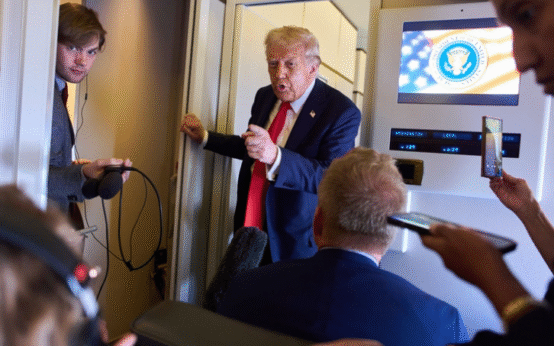Global diplomatic landscape is shifting in unexpected ways as the United States recalibrates its ties with India under Donald Trump’s leadership. While India once stood at the center of Washington’s Indo-Pacific strategy, Trump’s reluctance to deepen cooperation has introduced new strains in the partnership. At the same time, the European Union has been steadily intensifying its outreach to India, moving forward with economic, technological, and security engagements that are reshaping New Delhi’s global partnerships.
Trump’s rejection of closer India ties raises geopolitical concerns
Donald Trump’s stance on India signals a break from the continuity of previous U.S. administrations. Traditionally, Washington viewed India as an indispensable ally in balancing China’s growing influence in Asia. However, Trump has taken a transactional approach, demanding trade concessions while offering little in return. His administration has signaled skepticism toward India’s demands for easier market access and reduced tariffs, leaving Indian policymakers uncertain about the long-term direction of U.S.-India relations.

This shift is particularly concerning for India at a time when its border tensions with China remain unresolved and its security environment in South Asia continues to evolve. A lukewarm U.S. policy forces India to consider other strategic options that can support its ambitions to emerge as a global power.
European Union-India free trade agreement negotiations gain momentum
Against this backdrop, the European Union has positioned itself as a reliable partner. After years of stalled talks, negotiations for an EU-India free trade agreement have resumed with renewed urgency. European leaders recognize India’s importance as both a vast consumer market and a manufacturing hub capable of supporting Europe’s long-term supply chain diversification.
European companies are actively exploring opportunities in India’s renewable energy sector, pharmaceutical production, and information technology services. The EU’s investments in green technology and digital infrastructure align well with India’s domestic priorities, particularly Prime Minister Narendra Modi’s push for sustainable growth and a digital-first economy.
India balances ties between Washington, Brussels, and Beijing
India faces a complex balancing act as it manages relationships with major powers. On one hand, it seeks to preserve its defense and intelligence ties with the United States, which remain important for countering China. On the other hand, the unpredictability of Trump’s policies pushes India to deepen ties with Europe. At the same time, despite its rivalry with China, India continues to depend heavily on Chinese imports for critical goods, including electronics and pharmaceuticals.

This delicate balancing highlights India’s long-standing pursuit of “strategic autonomy,” a doctrine that allows it to avoid overdependence on any single global power.
Europe sees India as a key partner to reduce reliance on China
For Europe, the motivation to work with India is equally strategic. The COVID-19 pandemic exposed Europe’s overreliance on China for critical goods, from medical equipment to raw materials. The subsequent supply chain disruptions pushed the EU to seek alternative partners. India’s growing industrial capacity, its youthful workforce, and its status as the world’s largest democracy make it an appealing choice.
Furthermore, Europe’s strained relations with both China and Russia underline the importance of India as a stabilizing partner in Asia. By investing in India, the EU aims to secure long-term access to a market that can compete with China’s dominance.
Despite the optimism, the road ahead is not free from obstacles. Trade negotiations remain complicated, with both sides disagreeing on tariffs, labor protections, and data privacy laws. India’s protectionist tendencies in certain industries often clash with Europe’s push for open markets.


 Trump Escalates Trade Pressure on Canada with Tariffs on Wood
Trump Escalates Trade Pressure on Canada with Tariffs on Wood  Hungarian Vetoes Stall Progress at European Leaders’ Summits
Hungarian Vetoes Stall Progress at European Leaders’ Summits  Hamas Says It Has Not Received Trump’s Plan
Hamas Says It Has Not Received Trump’s Plan  Kim Jong-un Open to Trump Meeting Without Denuclearization
Kim Jong-un Open to Trump Meeting Without Denuclearization  U.S. Envoy Reveals Depths of Trump’s Grudge with Canada
U.S. Envoy Reveals Depths of Trump’s Grudge with Canada  US judge tosses Trump’s $15 billion New York Times lawsuit
US judge tosses Trump’s $15 billion New York Times lawsuit